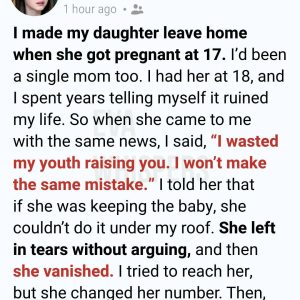For Democrats, the vote became a quiet but unmistakable line in the sand. The party leadership, long aware of Republican efforts to brand even the most incremental social programs as radical experiments, recognized that the optics of the moment mattered just as much as the text of the resolution. Many Democrats gritted their teeth as they voted yes, insisting privately that the measure was a bad-faith caricature, but also acknowledging the political reality: the party could not afford to be seen as flirting with an ideology the broader electorate still viewed with suspicion. Figures like Hakeem Jeffries and Tom Suozzi embodied that calculus. Both represent districts where suburban sensibilities and immigrant pragmatism coexist uneasily with the left-flank slogans popular on college campuses and Twitter threads. Their message — implicit but unmistakable — was that Democrats cannot win by ceding the language wars to Republicans, nor by embracing labels that opponents are eager to weaponize.
Jeffries, ever the disciplined strategist, framed the vote as a reaffirmation of democratic principles rather than a condemnation of progressive ambitions. Suozzi, whose political survival has always depended on threading the needle between reform and restraint, spoke privately about the need to protect vulnerable members in swing districts. To them, the vote was an inoculation, a preemptive shield against a 2026 midterm cycle already taking shape in opposition research folders across the country.
Into that charged moment walked Zohran Mamdani.
Not literally — he was still in New York, preparing for his first major national encounter as the city’s incoming mayor — but figuratively, he stepped squarely into the narrative Washington was constructing around ideology, pragmatism, and power. Mamdani, a child of immigrants and an organizer-turned-lawmaker, had built a reputation in Queens as a voice of conviction: articulate, unyielding, structurally minded in his critiques of housing policy, policing, and economic justice. His rise signaled to many that the city was turning a page, moving beyond the incremental centrism that had dominated its politics for decades. Yet his mandate, as sweeping as it felt to his supporters, came from a city that was also nervous — nervous about affordability, about public safety, about the growing gap between those who champion bold reforms and those who fear they’ll bear the brunt of unintended consequences.
In private, Mamdani had always insisted he was less interested in labels than in outcomes: safer streets, more affordable housing, reliable public transit, dignity for working families. Still, he could not control how others framed him. And in Washington, the timing was uncanny. The House had just sent a message to the country, one that would inevitably color his upcoming meeting with President Trump.
That meeting, scheduled weeks in advance, was already being scrutinized like a diplomatic summit. Trump, now in his second nonconsecutive term, had approached the return to the White House with a transactional clarity honed over decades in business and politics. To him, New York was both a former home and a battlefield — the city where he had built his empire, fought his legal wars, and seen his name used as shorthand for both ambition and division. Meeting its new mayor, especially one seen as a rising progressive star, offered him a chance to shape narratives on infrastructure, crime, and immigration — issues he had campaigned on relentlessly.
For Mamdani, the stakes were different. He had inherited a city buckling under housing shortages, strained budgets, and a transit system whose dysfunction had become a national joke. Federal dollars were not a luxury; they were a necessity. Infrastructure grants, policing partnerships, immigration support — all of these required cooperation from a federal government ideologically opposed to many of his political allies. He had no illusions about the nature of the meeting. It would be transactional, maybe even coldly so.
But the symbolism mattered. Washington had just reminded him — and every rising progressive across the country — that winning City Hall is one thing. Governing under a Congress eager to distance itself from your politics is something else entirely.
In the days leading up to the meeting, Mamdani huddled with advisors who urged him to strike a balance between principle and pragmatism. “Don’t give them a soundbite they can use against you,” warned one. “But don’t abandon the people who put you here,” urged another. His communications team spent hours drafting language that sounded firm without seeming combative, confident without sounding naïve.
Reporters, sensing the tension, circled. The tabloids in particular salivated over the contrast: Trump, the brash real estate mogul-president, facing Mamdani, the cerebral organizer-mayor. Headlines practically wrote themselves. “THE DEALMAKER MEETS THE IDEALIST.” “QUEENS KID VS. QUEENS KING.” “CAN A PROGRESSIVE MAYOR SURVIVE A TRUMP SIT-DOWN?”
Yet beyond the media theater, the moment revealed something deeper about the state of American politics. The ideological battles that defined the past decade — socialism vs. capitalism, reform vs. establishment, protest vs. governance — were entering a new phase. With Republicans eager to paint any redistributive policy as socialist overreach, and Democrats increasingly wary of being caught on the wrong end of that framing, national politics was becoming a game of linguistic trench warfare. And local leaders like Mamdani, whose communities demanded bold action but whose political reality required careful navigation, found themselves walking a narrow, shifting path.
On the morning of the meeting, Mamdani boarded the Amtrak to Washington with a small team and a folder thick with proposals: transit modernization funds, targeted housing assistance, expanded federal support for asylum seekers, and a pilot program for community-centered public safety initiatives. He knew not all — or even most — would be approved. But presenting a vision grounded in solvable problems was part of the message. He was not arriving as a symbol. He was arriving as a mayor.
Trump, for his part, saw opportunity. He could claim bipartisanship, outreach, strength. He could shape the narrative of a progressive mayor seeking his help. He could offer selective concessions that made him look magnanimous while reinforcing the idea that strong federal leadership — his leadership — was indispensable.
The room where they met was small, intentionally so. Cameras were ushered out after the handshake. Advisors lined the walls, Stone-faced. Mamdani opened with housing; Trump countered with policing. Transit came next; Trump steered the conversation toward immigration. The dynamic was predictable but not hostile. Both men understood the stakes. Both were playing to audiences beyond the room.
When the meeting ended, neither side declared victory. Both offered cautious optimism. And both knew the real significance lay not in what was agreed to, but in what the moment represented.
A changing city. A changing Congress. A political landscape where labels loomed large, and governing demanded more than rhetoric.
The House had taken its vote. Washington had drawn its line. And now Mamdani, like so many rising progressives stepping onto the national stage, would have to navigate the space between principle and power — a space defined not just by ideology, but by the realities of the people he had promised to serve.





